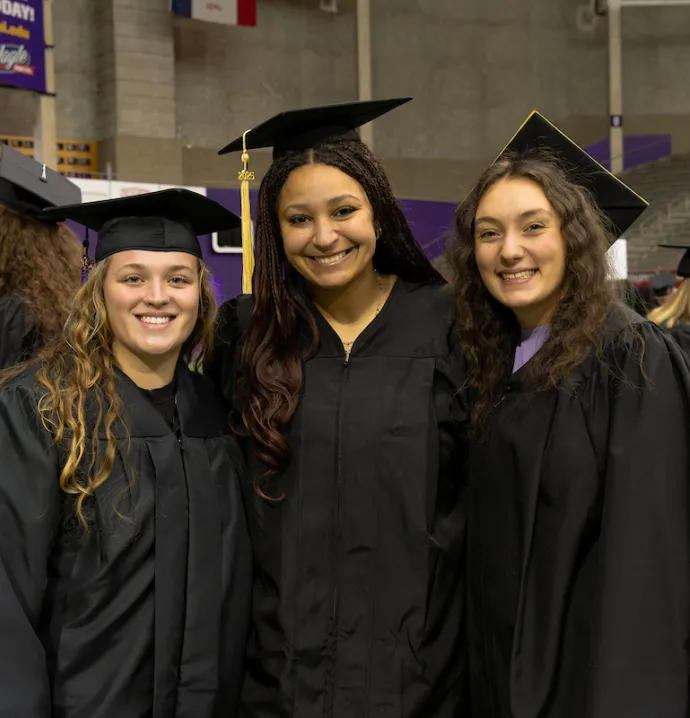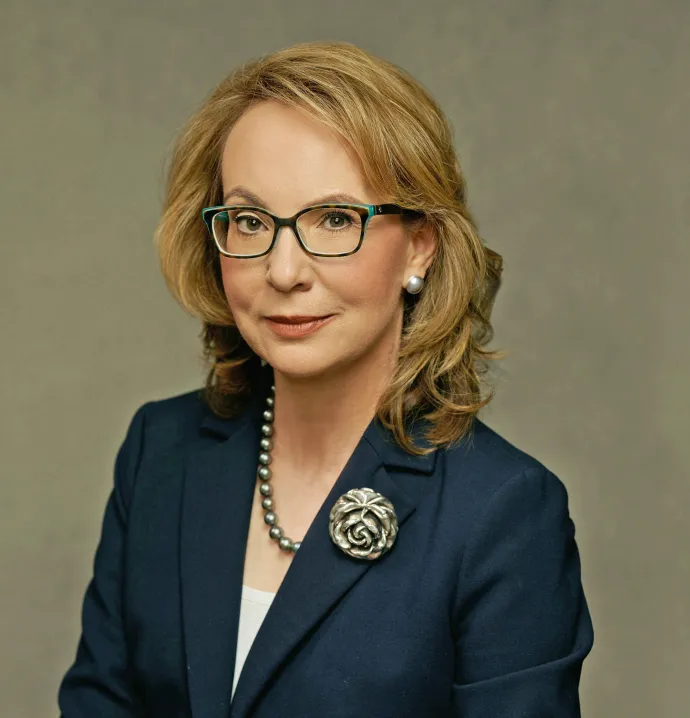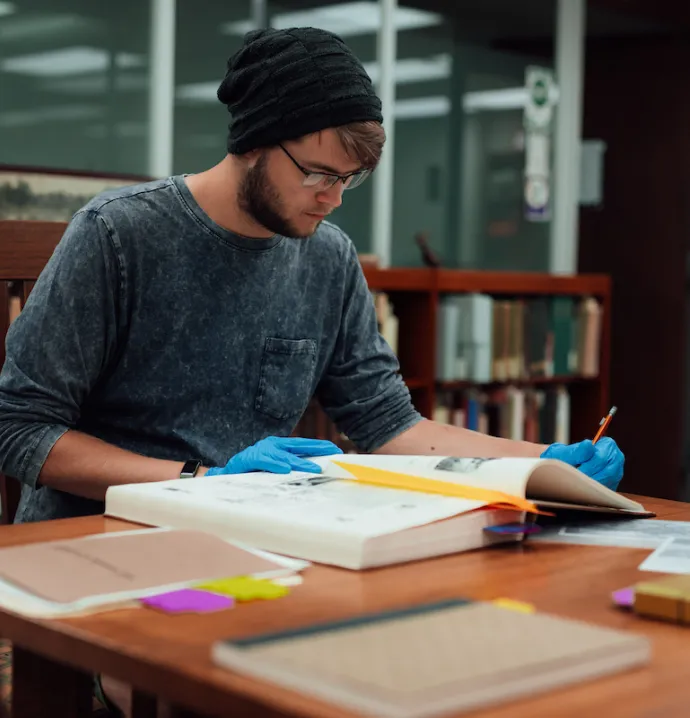Friendship fuels UNI alums to first place in film competition
Friendship fuels UNI alums to first place in film competition
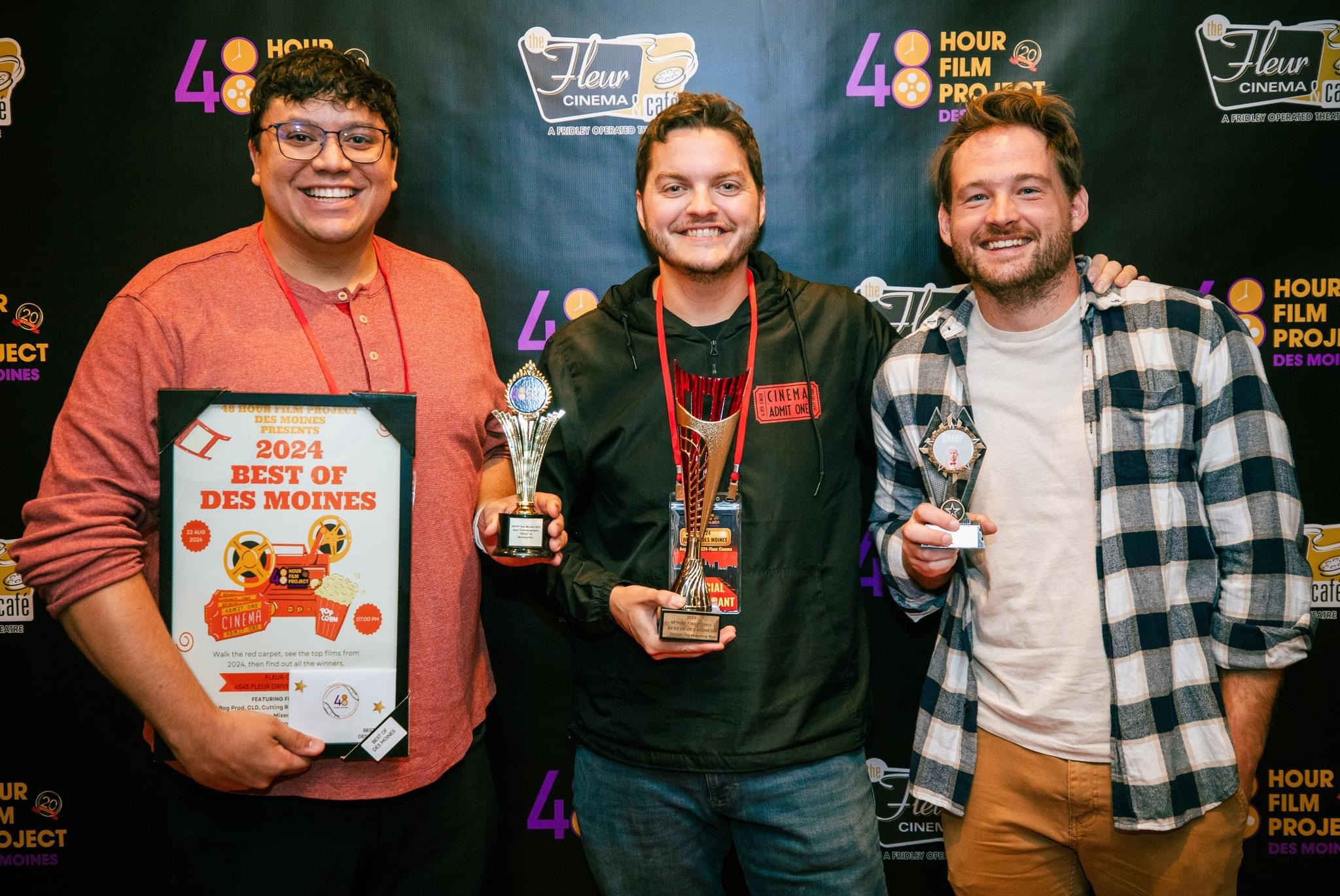
As UNI students, Blake Ruane and Austin Hansen engaged themselves in classes and activities that ignited a passion for filmmaking. These passions and the relationships they built while at UNI fueled their recent short film “Sharp,” which was submitted to the Des Moines 48 Hour Film Project. Among nearly 50 short film entries, the project won first place and will now move on to Filmapalooza in the spring where the winning films from cities across the country compete for the top prize.
“It was kind of a surreal moment to hear our name called after watching the whole awards ceremony and not feeling confident we were going to win number one, but it was just an amazing feeling, honestly,” said Ruane, a 2013 alum who majored in English.
The 48 Hour Film Project is a whirlwind experience, testing the creativity and technical skills of all competitors. At the beginning of the competition, each team draws two genres. They may make a film adhering to one of the genres or combine them. Each team also has certain elements that must be included in their film to ensure everyone is bringing brand-new concepts to the competition. Over the next 48 hours, the short film must take shape and be submitted.
This year, Ruane and Hansen drew science-fiction and whodunnit. Their resulting whodunnit short film centers around a member of a barbershop quartet who explains to his barber that members of his quartet are being murdered.
The core cast and crew, all UNI alums, all had at least one role to play. Ruane was writer and director. Hansen was director of photography. Their friend Colby Campbell was assistant director, and Ian Goldsmith and Jefferson Fosbender were both actors. Their significant others and even their parents — most of whom are also UNI alums — also helped as extras and provided craft services.
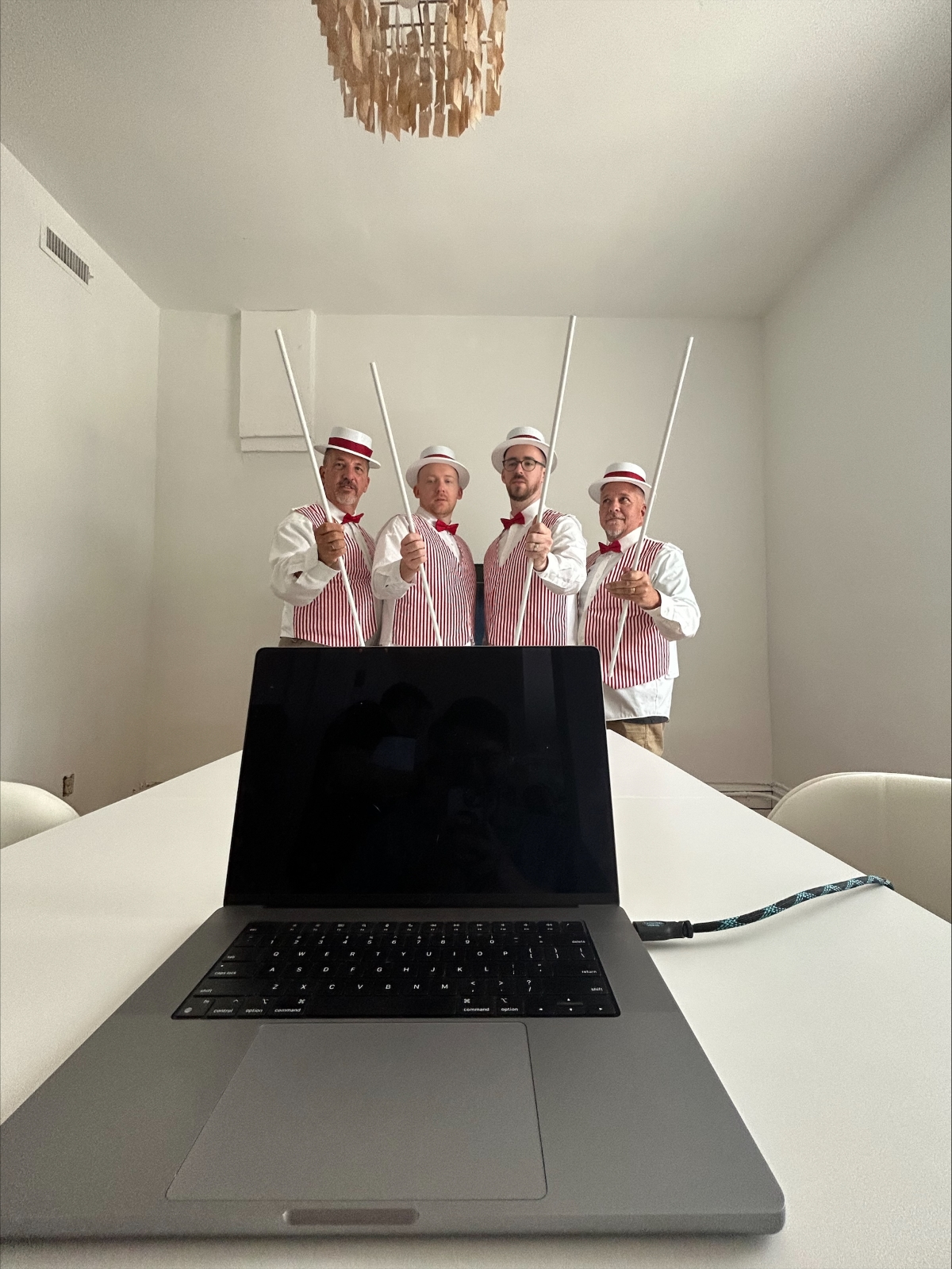
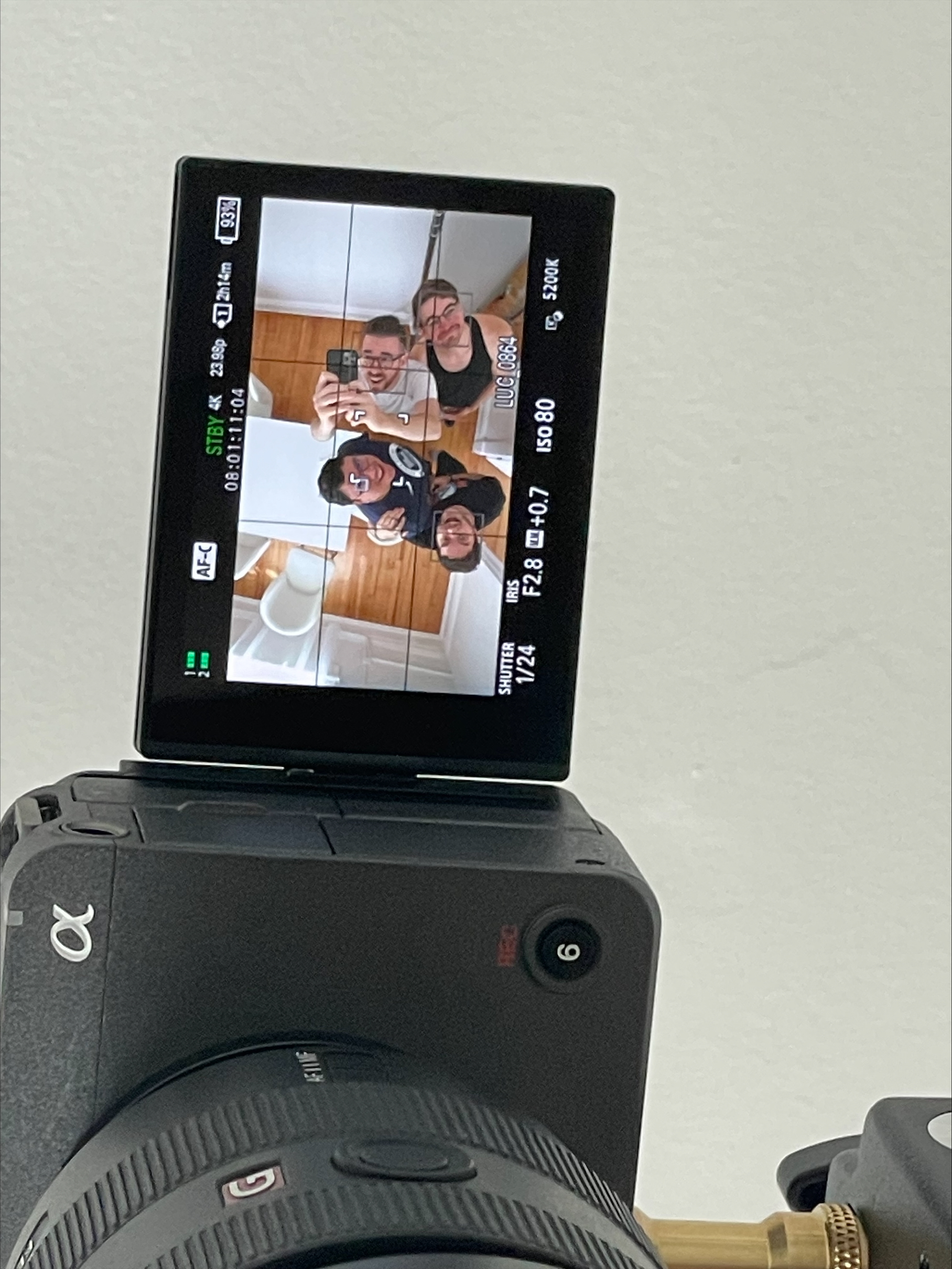
“My favorite part as a whole is just the five of us don't get together in the same room very often,” said Hansen, a 2016 electronic media alum. “We talk every single day, but this is an excuse to hang out for an entire weekend, which is amazing. That weekend kind of recreates the college experience we had at UNI and that magic.”
Ruane echoed this sentiment.
“It's so hard to pick up lifelong friends,” said Ruane. “It's so hard to make friends as an adult in general. It's so, so wonderful to have people who I met in college because I went to UNI and was involved in certain things. I met people who share my interests, and I can really connect with. It's hard to maintain friendships over the years too, but the fact that the group involved in this project has maintained a great connection is pretty special. It’s been 10 years since I graduated, so to still have really fulfilling and engaging relationships with those people is amazing to me.”
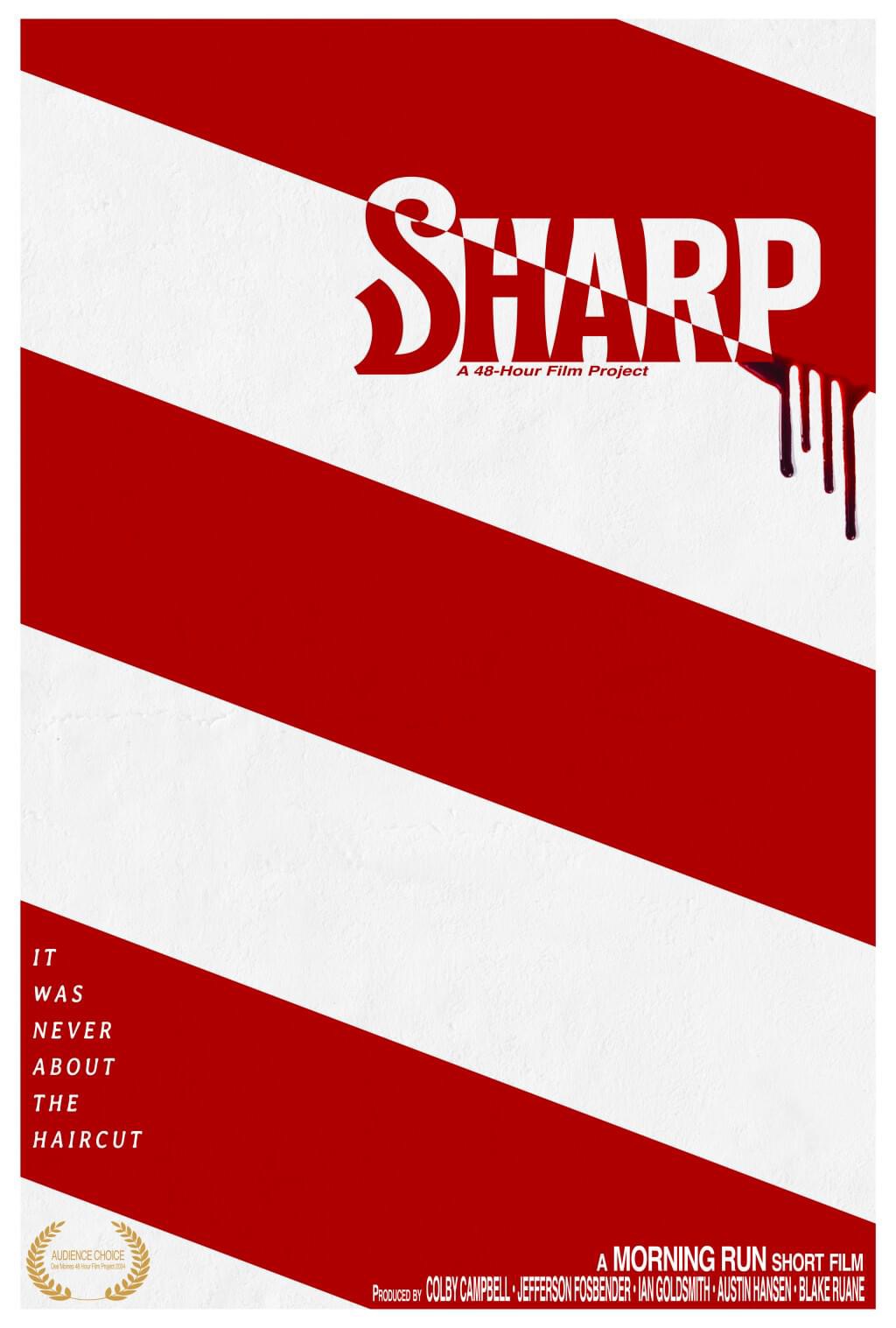
This film project was far from the first time this group collaborated on a project together. The first collaboration took place while Hansen and Ruane were still students at UNI, and Hansen needed to create a short film for a class. Hansen described the project to his mom, Connie Hansen (now associate director of student involvement) in her on-campus office. Ruane was working there at the time, and he told Hansen he would write him a script for his project.
“I thought it was a joke,” said Hansen, “He's like, ‘I'll make you a script.’ I’m like, ‘Sure, Blake, make me a script.’ Then when I got an email with a full script in it, I realized we were committed. We're doing it. This is happening. This is great. That was the start of it.”
Since then, the pair have competed in numerous 48 hour film festivals in Des Moines and Chicago alongside Campbell, Goldsmith and Fosbender.
In their day jobs, Hansen and Ruane both utilize their creativity. Hansen works as assistant athletics director for content development and broadcast operations for Loyola athletics, while Ruane works as a content lead for Spinutech.
They both appreciate the way the 48 Hour Film Project allows them to chase the passion they have for filmmaking.
“It just allows us to work creative muscles we don't normally get to work in our day to day jobs,” said Ruane.


